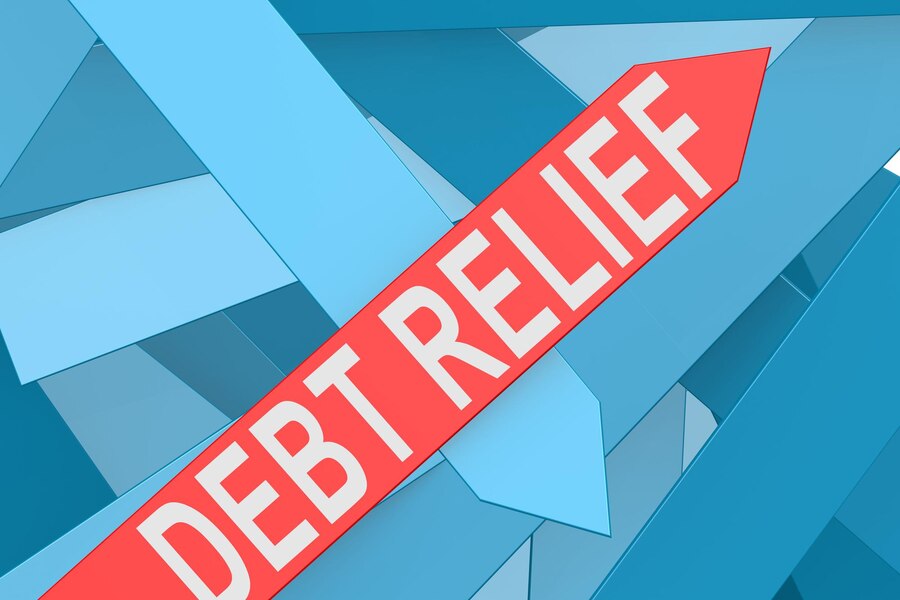Effectively Finding Debt Settlement Services in Paterson, New-Jersey
Do you owe a ton of debt? A debt settlement plan can greatly help you out, especially when owing debt collectors. A debt settlement agency in Paterson, New-Jersey, can help you legally settle your debts, sometimes paying a lot less. Debt settlement options are usually preferred over filing for Chapter 7 or Chapter 13 bankruptcy.
Settling Debt For Less In Paterson, New-Jersey
Are you curious about how to get your debts paid off when you can barely make your monthly payments? Debt settlement services are becoming more popular than ever as the economy is going through a rough patch. Because of that, creditors are becoming more familiar with people choosing to go with debt settlement. Debt settlement is a preferred option compared to bankruptcy for many reasons, including lowering debts up to 80% in some situations.
Always research the debt settlement company you are thinking about using to verify they have a good track record and offer reasonably priced services. Choosing one associated with the AFCC (American Fair Credit Council) is one way to find trusted services. They should be able to give an estimated amount and payment period to get you back on track.
Doing The Debt Settlement Yourself
When it comes to debt settlement, the process isn’t magic. Because of this, many people question paying the service fees and wonder why can’t they just work directly with the creditors or debt collectors. While it is possible, it is also very risky. Debt collection agencies, especially, have tactics for just the situation when a consumer attempts to work out a lower payoff themselves.
In most cases, the debt collection company will still pressure you into paying the full debt amount. However, by hiring a debt settlement company with experience in negotiating, they can bypass those tactics. They can often get 40% to 60%, sometimes more knocked off the total debt owed. When they have a nominal 10% to 20% fee (on average), you are still saving a good amount. However, it is not all positive, and you will need to know the benefits and disadvantages of choosing a debt settlement program.
Advantages and Disadvantages of Debt Settlement
First, the disadvantages, because there is a reason debt settlement should be a last-ditch effort only used to avoid bankruptcy. If you have the means to repay your debt, you should not use debt settlement as a way to reduce that debt, and chances are you would not be successful while still harming your credit.
The process can take time; the more creditors you owe, the longer it can take for the negotiation process. During this period, your balances will continue to have late fees and interest added to them every month. The entire process could take several months, even years, depending on your situation.
The debt settlement company cannot guarantee that creditors will accept a lower payment. While some might accept a much lower payoff, some may not accept anything less than the total amount. In this case, you would end up owing the creditor, plus all the late fees and interest added.
If you owe various creditors and a massive amount of debt, expect to put your home or other property up for collateral. This assures the debt settlement company that if you become unable to make payments on the debt settlement plan, you may lose the asset(s). This makes debt settlement a high-risk option, but from a business perspective, any consumer looking into debt settlement or bankruptcy is also at high risk.
Hidden costs are another disadvantage that you may run into. You can do all your research and ask all the right questions and sometimes still get stuck with a hidden fee. These fees are often in the form of setup costs, monthly maintenance charges, etc. These are small fees that pad the payments over time in favor of the agency. Depending on the repayment length, you may find that with these fees and interest, you end up paying nearly as much, if not more, than your original debt.
Taxation issues are another real concern, more so if you owe large amounts of debt and the debt resolution company can work out a large settlement. Not always, but in most cases, the IRS will consider the settled amount as taxable income. For example, if you owe $40,000 in credit card debt, you get a 50% settlement deal, and the creditors report $20,000 as settled. This will be the taxable amount.
If you owe a large amount of taxes, it is recommended you speak with a tax professional prior to applying for debt settlement. They may have other recommendations or suggestions on how to handle what could be massive taxation.
The Advantages
While there are many reasons not to use a debt settlement, there are some reasons that people still opt for this method of debt relief over the alternative, bankruptcy, which consumers never really get away from. The first advantage of debt settlement is the 7-year period vs. 10 years of bankruptcy being a direct impact on the credit score.
Once the 7-year period is up, debt settlement is no longer going to show on your credit report either. That means, once it is done and over with, that’s it. You won’t have to deal with being asked about it forever, like with bankruptcy which shows forever on the report. If you fail to tell the truth about bankruptcy to a creditor or employer, not only will you face possible fraud charges, but you will likely lose your job.
Settling debt is not the first choice people go with, but it does help get you out of debt in a shorter amount of time than making minimum payments for 10+ years. If you have other ways to deal with the debt, it would be in your best interest to use them, but if bankruptcy is the only other option, debt settlement is usually the better option.
It is a common belief that debt settlement is somehow ripping off the creditors. That is not the overall goal and often is not the case. In fact, between late fees, interest, and a lump sum payoff offer, the creditor has likely reclaimed what you originally owed, if not more. If you have been struggling to get out of debt with a creditor for years, they may have made a massive profit off the interest alone!
When you truly have no way of paying your monthly bills, debt settlement can be used to lower your amount and give you a lower interest and a single payment to manage. This monthly payment is usually much less than you were paying before, relieving some stress, making it easier to keep up with, and possibly giving you the ability to start a nest egg.
Creditors are aware more people are beginning to use debt settlement to dig themselves out of debt. They also know that accepting a lower offer guarantees they get paid something. With bankruptcy, they may not receive anything else.
Open credit cards may be allowed to remain open. If the debt settlement terms do not state they cannot be used or must be closed, it can provide a safety net for major emergency situations. Using it frequently would only slow your progress of getting out of debt, so that is not suggested.
Bankruptcy will ruin your credit and is something you constantly battle to rebuild from. Debt settlement can actually help you begin rebuilding your credit over time as you make on-time payments. Additionally, as you pay the debt off, your credit utilization gets lower over time and also improves your overall credit score.
What Are The Costs For Debt Settlement Services?
A debt settlement company will charge an upfront fee for the application process, usually a small amount. If they are asking for a large fee upfront, that is a red flag, and it’s recommended to find another provider.
The main method of making money for their services is tacked on to the monthly payments. There are two ways they can charge, a percentage based on the total debt owed or based on the settled amount. The percentage is often 10% to 20% but can be more which is something you should ask upfront and be sure it’s reasonable.
If they charge 20% of the total debt owed, and you owe $80,000, their fee would be $16,000. However, if they charge based on the settled debt amount and they get you a 50% reduced payment, 20% of $40,000 would only be $8,000.
It is recommended to find a debt settlement company that will charge a percentage of the settled amount, as that is often the lowest method if you also pair it with a shorter repayment period.
Finding A Debt Settlement Company In Paterson, New-Jersey
The first thing you want to do is research the company through the BBB or Attorney General for your state. They will be able to share any official complaints and issues people have made.
Once you have an idea of how the company handles business, find out how they support clients. What services do they offer? What do they charge for their service, and how long do they expect the process to take? If they have massive fees upfront, it may be best to keep looking.
Don’t think a solution will be free, cheap, or even a legitimate business simply because it has a non-profit label. The reality is that many of these types of debt settlement agencies will attempt to hide insanely high fees.
Look at testimonials. What are other people saying about the company? Be aware that it is possible for a company to fake 5-star reviews, but chances are they have not paid to receive low-star negative feedback.
Red Flags To Avoid Debt Settlement Scams
Massive upfront fees are the first red flag and may be the only red flag you need. If they guarantee a result, this is the second red flag.
Debt settlement scams are a real thing, and the way they work is by charging a larger upfront service fee. They lead you to believe they are working on getting you the best deal possible, but really they may be doing very little (if anything) to get your debts lowered.
Worst case scenario, they lead you to think the process was successful. You start repaying the debt settlement company thinking all is well, but months down the road, you learn they did not settle all the debts (or any) when you get sued by the creditor(s).

